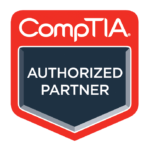ISO 27001 Certification Training Course
ISO 27001 is an international standard that specifies the requirements for an ISMS (information security management system). An ISMS is a framework of policies, processes and procedures that helps an organisation manage its information security risks.
ISO 27001 certification provides independent, third-party verification that an organisation’s ISMS meets the requirements of the ISO 27001 standard. Certification is granted by an accredited certification body following a successful audit of the organisation’s ISMS.
Organisations that are certified to ISO 27001 can use the certification to demonstrate to their customers and other stakeholders that they have implemented an ISMS that meets international best practice.
- Contact us: +91 7982601944, +91 8368545467
- Email Id: support@securiumacademy.com
- Course Duration: 40 Hours
- Course Level: Intermediate
- Course Delivery : Online
- Language: Hindi, English
- Accreditation by: PECB
ISO 27001 Certification Highlights
- Information Security Assurance
- Risk-Based Approach
- Compliance with International Standards
- Customer Confidence
- Competitive Advantage
- Legal and Regulatory Compliance
- Third-Party Trust
- Continual Improvement
- Data Protection and Privacy Compliance
- Internal Efficiency
- Employee Awareness
- Management Involvement
ISO 27001 Description
Any management system’s success depends on effective auditing. As a result, it involves a great deal of responsibility and challenges. InfosecTrain’s ISO 27001:2022 Lead Auditor training and certification course is a five-day intensive course to inculcate in participants the knowledge to perform an Information Security Management System (ISMS) audit by employing recommended audit fundamentals, principals, procedures, and methodologies.
Our course curriculum is aligned with the latest changes in ISO 27001 (from ISO 27001:2013 to ISO 27001:2022) that will teach participants all they need to know about audit principles, preparation, and initiation. During this training, participants will acquire the skills necessary to manage an internal audit program effectively, document audit findings, close the audit, evaluate action plans, and understand the impact of trends and technology in auditing, risk-based auditing, evidence-based auditing, and the beginning of the audit process. The participants will acquire the expertise needed to conduct an audit successfully based on practical exercises.
With cyber-crime on the rise and new threats constantly emerging, it can seem difficult or even impossible to manage cyber-risks. ISO/IEC 27001 helps organizations become risk-aware and proactively identify and address weaknesses.
ISO/IEC 27001 promotes a holistic approach to information security: vetting people, policies and technology. An information security management system implemented according to this standard is a tool for risk management, cyber-resilience and operational excellence
Once certification is achieved, it is valid for three years. However, the ISMS must be managed and maintained throughout that period. Auditors from the certification body will conduct annual surveillance visits while the certification is valid.
ISO 27001 Course contents
Module 1: Introduction to the information security management system (ISMS) and ISO/IEC 27001
- Training course objectives and structure
- Standards and regulatory frameworks
- Certification process
- Fundamental concepts and principles of information security
- Information security management system (ISMS)
Module 2: Audit principles, preparation, and initiation of an audit
- Fundamental audit concepts and principles
- The impact of trends and technology in auditing
- Evidence-based auditing
- Risk-based auditing
- Initiation of the audit process
- Stage 1 audit
Module 3: On-site audit activities
- Preparing for stage 2 audit
- Stage 2 audit
- Communication during the audit
- Audit procedures
- Creating audit test plans
Module 4: Closing the audit
- Drafting audit findings and nonconformity reports
- Audit documentation and quality review
- Closing of the audit
- Evaluation of action plans by the auditor
- Beyond the initial audit
- Managing an internal audit program
- Closing of the training course
Module 5: Certification Exam
- Exam
ISO 27001 Taking the exam
General information about the exam
Candidates are required to arrive/be present at least 30 minutes before the exam starts.
Candidates who arrive late will not be given additional time to compensate for the late arrival and may not be
allowed to sit for the exam.
Candidates are required to bring a valid identity card (a national ID card, driver’s license, or passport) and
show it to the invigilator.
If requested on the day of the exam (paper-based exams), additional time can be provided to candidates
taking the exam in a non-native language, as follows:
- 10 additional minutes for Foundation exams
- 20 additional minutes for Manager exams
- 30 additional minutes for Lead exams
Get in touch with us.
CCNA Training Objectives
- Paper-based: Exams are provided on paper, where candidates are not allowed to use anything but the exam paper and a pen. The use of electronic devices, such as laptops, tablets, or phones, is not allowed. The exam session is supervised by a PECB-approved Inv+++++igilator at the location where the Partner has organized the training course.
- Online: Exams are provided electronically via the PECB Exams application. The use of electronic devices, such as tablets and cell phones, is not allowed. The exam session is supervised remotely by a PECB Invigilator via the PECB Exams application and an external/integrated camera.
For more information about online exams, go to the PECB Online Exam Guide.
PECB exams are available in two types:
- A hard copy of the ISO/IEC 27001 standard
- Training course materials (accessed through the PECB Exams app and/or printed)
- Any personal notes taken during the training course (accessed through the PECB Exams app and/or
- Essay-type question exam
- Multiple-choice question exam
This exam comprises essay-type questions. Essay-type questions are used to determine and evaluate whether a candidate can clearly answer questions related to the defined competency domains. Additionally, problem-solving techniques and arguments that are supported with reasoning and evidence will also be evaluated. The exam aims to evaluate candidates’ comprehension, analytical skills, and applied knowledge.
Therefore, candidates are required to provide logical and convincing answers and explanations in order to demonstrate that they have understood the content and the main concepts of the competency domains. This is an open-book exam. The candidate is allowed to use the following reference materials: printed) The passing score of the exam is 70%. After successfully passing the exam, candidates will be able to apply for obtaining the “PECB Certified ISO/IEC 27001 Lead Implementer” credential.
Frequently Asked Questions
Nowadays, data theft, cybercrime and liability for privacy leaks are risks that all organizations need to factor in. Any business needs to think strategically about its information security needs, and how they relate to its own objectives, processes, size and structure. The ISO/IEC 27001 standard enables organizations to establish an information security management system and apply a risk management process that is adapted to their size and needs, and scale it as necessary as these factors evolve.
While information technology (IT) is the industry with the largest number of ISO/IEC 27001- certified enterprises (almost a fifth of all valid certificates to ISO/IEC 27001 as per the ISO Survey 2021), the benefits of this standard have convinced companies across all economic sectors (all kinds of services and manufacturing as well as the primary sector; private, public and non-profit organizations).
Companies that adopt the holistic approach described in ISO/IEC 27001 will make sure information security is built into organizational processes, information systems and management controls. They gain efficiency and often emerge as leaders within their industries.
Implementing the information security framework specified in the ISO/IEC 27001 standard helps you:
Reduce your vulnerability to the growing threat of cyber-attacks
- Respond to evolving security risks
- Ensure that assets such as financial statements, intellectual property, employee data and information entrusted by third parties remain undamaged, confidential, and available as needed
- Provide a centrally managed framework that secures all information in one place
- Prepare people, processes and technology throughout your organization to face technology-based risks and other threats
- Secure information in all forms, including paper-based, cloud-based and digital data
- Save money by increasing efficiency and reducing expenses for ineffective defence technology
Confidentiality
→ Meaning: Only the right people can access the information held by the organization.
⚠ Risk example: Criminals get hold of your clients’ login details and sell them on the Darknet.
Information integrity
→ Meaning: Data that the organization uses to pursue its business or keeps safe for others is reliably stored and not erased or damaged.
⚠ Risk example: A staff member accidentally deletes a row in a file during processing.
Availability of data:
→ Meaning: The organization and its clients can access the information whenever it is necessary so that business purposes and customer expectations are satisfied.
⚠ Risk example: Your enterprise database goes offline because of server problems and insufficient backup.
An information security management system that meets the requirements of ISO/IEC 27001 preserves the confidentiality, integrity and availability of information by applying a risk management process and gives confidence to interested parties that risks are adequately managed.
Even though it is sometimes referred to as ISO 27001, the official abbreviation for the International Standard on requirements for information security management is ISO/IEC 27001. That is because it has been jointly published by ISO and the International Electrotechnical Commission (IEC). The number indicates that it was published under the responsibility of Subcommittee 27 (on Information Security, Cybersecurity and Privacy Protection) of ISO’s and IEC’s Joint Technical Committee on Information Technology (ISO/IEC JTC
Certification to ISO/IEC 27001 is one way to demonstrate to stakeholders and customers that you are committed and able to manage information securely and safely. Holding a certificate issued by an accreditation body may bring an additional layer of confidence, as an accreditation body has provided independent confirmation of the certification body’s competence. If you wish to use a logo to demonstrate certification, contact the certification body that issued the certificate. As in other contexts, standards should always be referred to with their full reference, for example “certified to ISO/IEC 27001:2022” (not just “certified to ISO 27001”). See full details about use of the ISO logo.
As with other ISO management system standards, companies implementing ISO/IEC 27001 can decide whether they want to go through a certification process. Some organizations choose to implement the standard in order to benefit from the best practice it contains, while others also want to get certified to reassure customers and clients.
ISO/IEC 27001 is widely used around the world. As per the ISO Survey 2021, over 50 000 certificates were reported in more than 140 countries and from all economic sectors, ranging from agriculture through manufacturing to social services.














